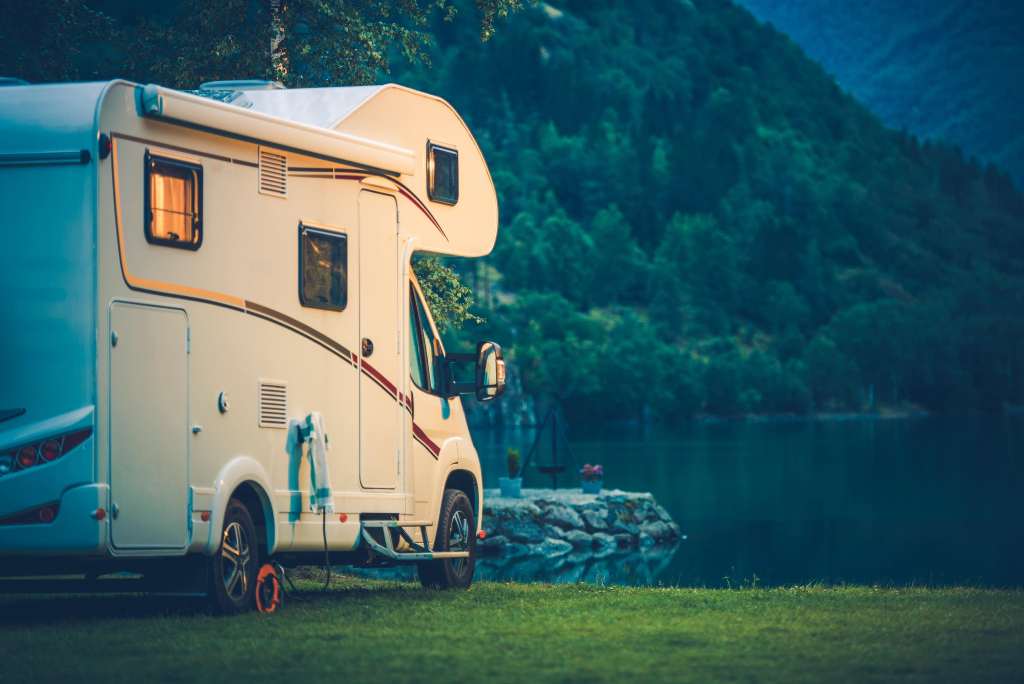
Full Time RV Lifestyle; Tips and Recommendations
Congratulations on deciding to become a nomad. You may have decided to spend your retirement traveling, and an RV gives you an affordable way to see the country on your terms. Or you’ve chosen to become a digital nomad, working from your home on the road. Here are a few tips and recommendations to make the transition to a full time RV lifestyle easier.
Tip 1: Set a Date
The difference between a dream and a goal is a plan. If you want to make the transition to the RV lifestyle, set a date to be living in the RV full time. This has several effects. One is that it forces you to take things seriously. Secondly, it makes you plan the necessary steps, regardless of your situation.

When will you buy the RV, if you don’t already own it? When will you establish residency or have a system in place to collect your mail while you’re traveling? When will you sell your house and most of its contents or find something else to do with it? You’ll have to draw up a to-do list and timeline, once you have the date set.
Tip 2: Simplify
One of the most difficult parts of the transition is making do with less. You have less space, so you obviously need less stuff. Start by decluttering your home, selling and donating most of what you own. To make the job doable, do one room or just one area at a time.
Have the goal of getting rid of most of it and having a plan for doing so almost immediately, whether it goes out to the trash or gets taken to charity at the end of the day. Only keep things that are necessities like the essentials of your wardrobe and tools you need to maintain the RV.
If you intend on selling your home, you should expect to keep only what you really need in your RV. In a worst case scenario, you might leave an extra car and some boxes in a storage unit, though you’ll need to set up a system for paying the bills so these things aren’t auctioned off.
You should simplify every other aspect of your life, too. Pay off a lot of your debt so you don’t have to worry about debt collectors. Set up automated payments for regular expenses like your cell phone bill. Go through a year’s worth of bills to find services to cancel.
This could range from streaming media services to loot boxes sent monthly to your home.
Tip 3: Learn How to Cook with What You Can Carry
Too many RVers blow through their budget by constantly eating out. Others find themselves living off of snack food because they don’t know how to cook. Learn how to cook with what you can carry. This may mean learning how to cook in small pots instead of a crockpot or oven.
Learn how to cook on a gas stove that relies on a limited supply of propane. Start experimenting with recipes that are easy to cook while on the road with canned or dried food. Know how to balance the power demands of a coffee maker versus a pressure cooker and what you can do with each.
Learn how to clean camp plates and plastic utensils in the RV sink.
Tip 4: Plan Where You’ll Park and Stay
Plan where you’ll park and stay. Do you plan on staying in RV parks most of the time? Consider signing up for discount camping clubs. Do you plan on boondocking a lot? Consider signing up for an annual membership at national parks so you can save money on campground reservations.

Do you hope to stay with friends and family regularly? Find out whether or not they can accommodate your RV.
Tip 5: Learn How to Maintain the RV
The RV lifestyle means your RV is your home. You don’t want to have your home towed to a shop to sit for a week while you camp in a hotel. This means you need to learn how to maintain the RV and invest in maintenance. Have the vehicle inspected and everything in question repaired before you hit the road full-time.
Learn how to do basic maintenance on the electrical system and generator. Know how to change tires, replace fuses and flush the water system. Be able to empty the wastewater tanks and refill the fresh water tanks in a few moments.
Tip 6: Invest in Protection
Invest in protection for your RV. Buy surge protectors and inverters to protect your electrical system from surges. If you’re going to install solar panels, buy a solar charge controller with built-in protective features so you don’t accidentally drain your batteries trying to charge them.
Consider signing up for roadside assistance programs and complete insurance coverage for the vehicle. Carry fix-a-flat kits and at least one spare tire. Then you’re less likely to be left stranded by the side of the road, and any major repairs won’t wipe you out financially. https://rvside.com explained these topics. I checked them before. You should also consider that will help to protect yourself on the road.
Tip 7: Communicate, Communicate, Communicate
RV living is only made manageable by communicating with everyone involved. You have limited space in an RV, so you need to have open, honest communication with your partner. Don’t drop hints, and don’t give people the silent treatment. You don’t have the space to hide from each other, and you may not go for a walk to get away for a while.

Communicate with your friends and family as you make the transition and afterward. Let them know you’re downsizing.
They might take a few things off your hands, while you know they are going to a home where they’ll be appreciated. You may get tips from people who previously lived in an RV, or they may offer to watch the house while you’re traveling on dry runs. Or they may offer to collect the mail until your house is sold, if they can’t refer you to a realtor to sell it.
Let family know where you’re going, and have a plan for when they must get in touch with you.
Conclusion
All of the hard work is worth it when you hit the road, knowing that everything is taken care of. Investing time, effort and resources into getting ready will help you avoid the worst case scenarios and ensure that you enjoy living in an RV.




